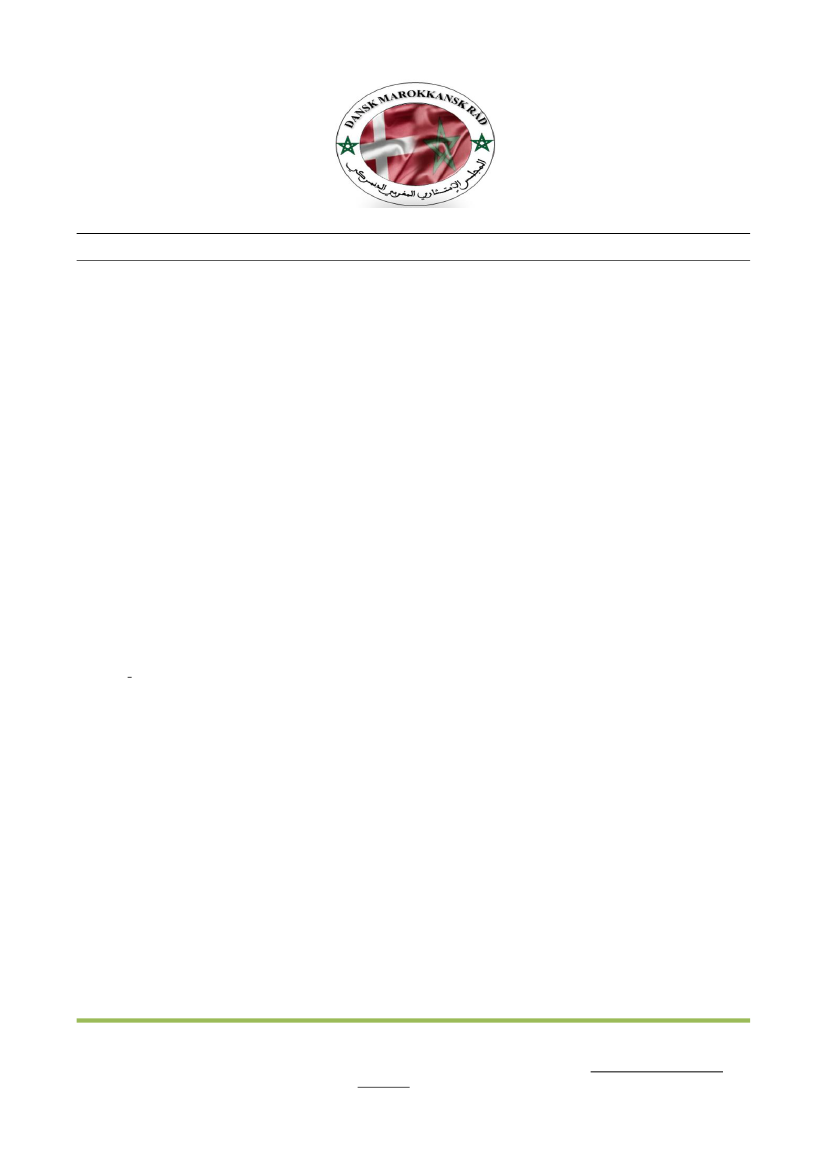
Dansk Marokkansk Raad
يكرمنادلا يبرغملا يراشتسلاا سلجملا
Natural Resources and Sahara
The Kingdom of Morocco’s approach is clear: we give a careful analysis of the facts on the
ground and simply let the facts speak for themselves.
The Moroccan Southern provinces are a sparely-populated territory on the west coast of Africa:
570.000 inhabitants for a land area almost the size of Great Britain. During the Spanish control
of the region, most parts of Southern provinces were populated by Arab and Amazigh nomadic
and whose historic and religious allegiance went to the ruling Sultan (King) of Morocco. As a
matter of fact, an advisory opinion issued by the International Court of Justice in The Hague
(Netherlands) on October the 16th, 1975 recognizes the «
legal ties between this territory and the
Kingdom of Morocco
».
1.
Natural Resources, Economic & Infrastructure Development
It is only since Morocco has taken back this territory again that coastline cities such a Laayoune
and Dakhla have seen significant economic and socio-cultural development. To develop the
Southern provinces during the last four decades,
the Moroccan government has been
spending 7 additional dollars for each and every dollar it collected and re-invested
locally,
as officially stated by His Majesty King Mohammed VI in a recent speech.
Moreover, the Polisario claims phosphates as the principle motivation for Morocco’s presence
in the Sahara, but this is basically irrelevant since
75% of the world’s phosphate reserves are
found in the northern Moroccan city of Khouribga, not in the Southern provinces.
Phosphates extracted from the Southern provinces represent only 8 percent of
Morocco’s total production.
That goes without saying that phosphates production,
transportation and exportation costs are higher in Southern provinces compared to other areas
in Morocco; yet, they have been kept mainly for social reasons, such as preserving employment
and meeting the local population’s needs.
The financial income Morocco earned from phosphates and fishing in the Sahara does not
exceed $5.2 billion over four decades. Has Morocco used these funds in projects that do not
serve the interests of the Saharan population as the leaders of the Polisario claim ? Has
Morocco exploited the natural resources of the region ?
A mere comparison between the
state of the Sahara at the time of Spanish colonialism and the present time will suffice
Dansk Marokkansk Raad
Dortheavej. 14. 2400 København NV - Tlf. 00 45 26 85 22 03 - Fax. 00 45 38 86 22 03 - Email.:
www.dm- raad.com
Cvr.nr. :
36669667
. Bank.: Fælleskassen. Reg.nr. 8411. Konto.nr. 8882704000. BIC/Swift. DANBDK22.
IBAN.DK8902778882704000